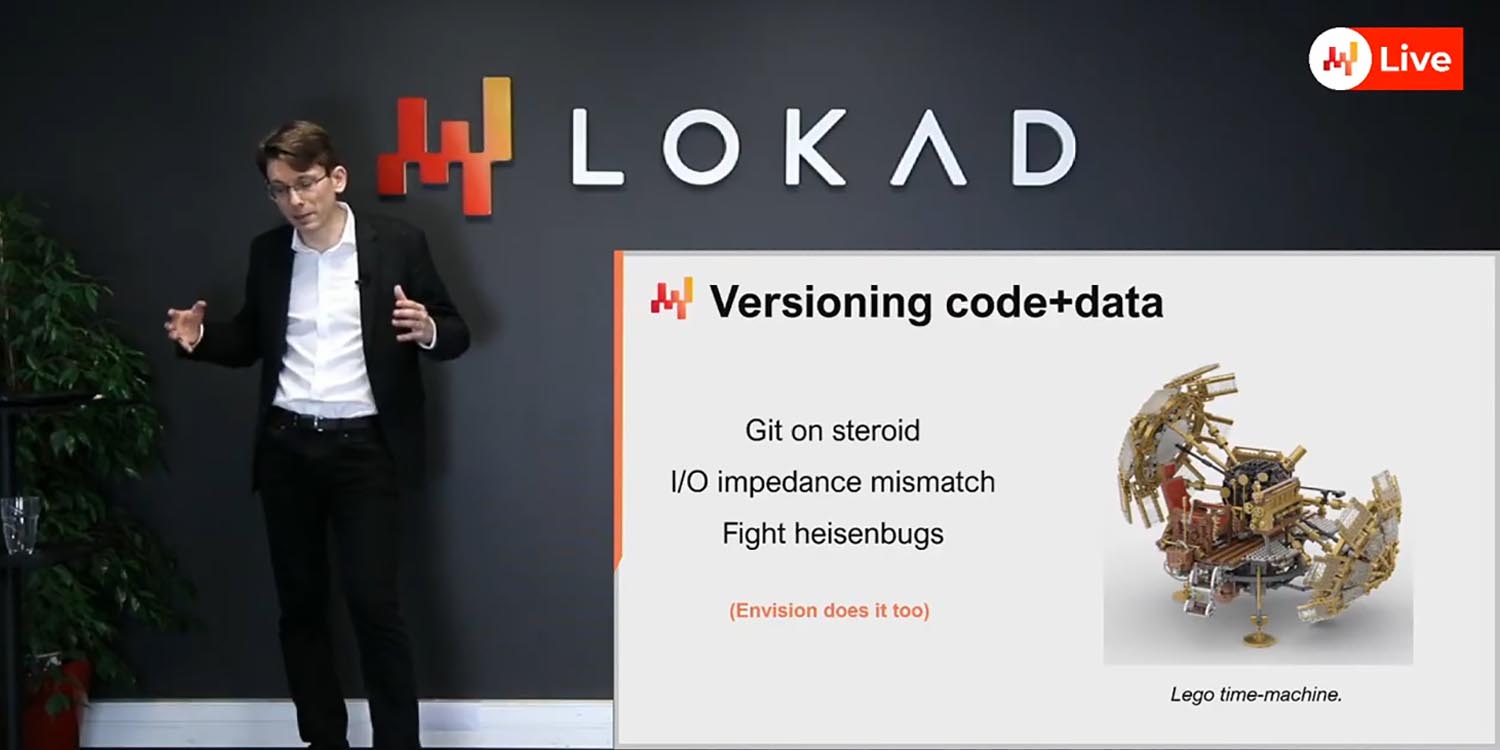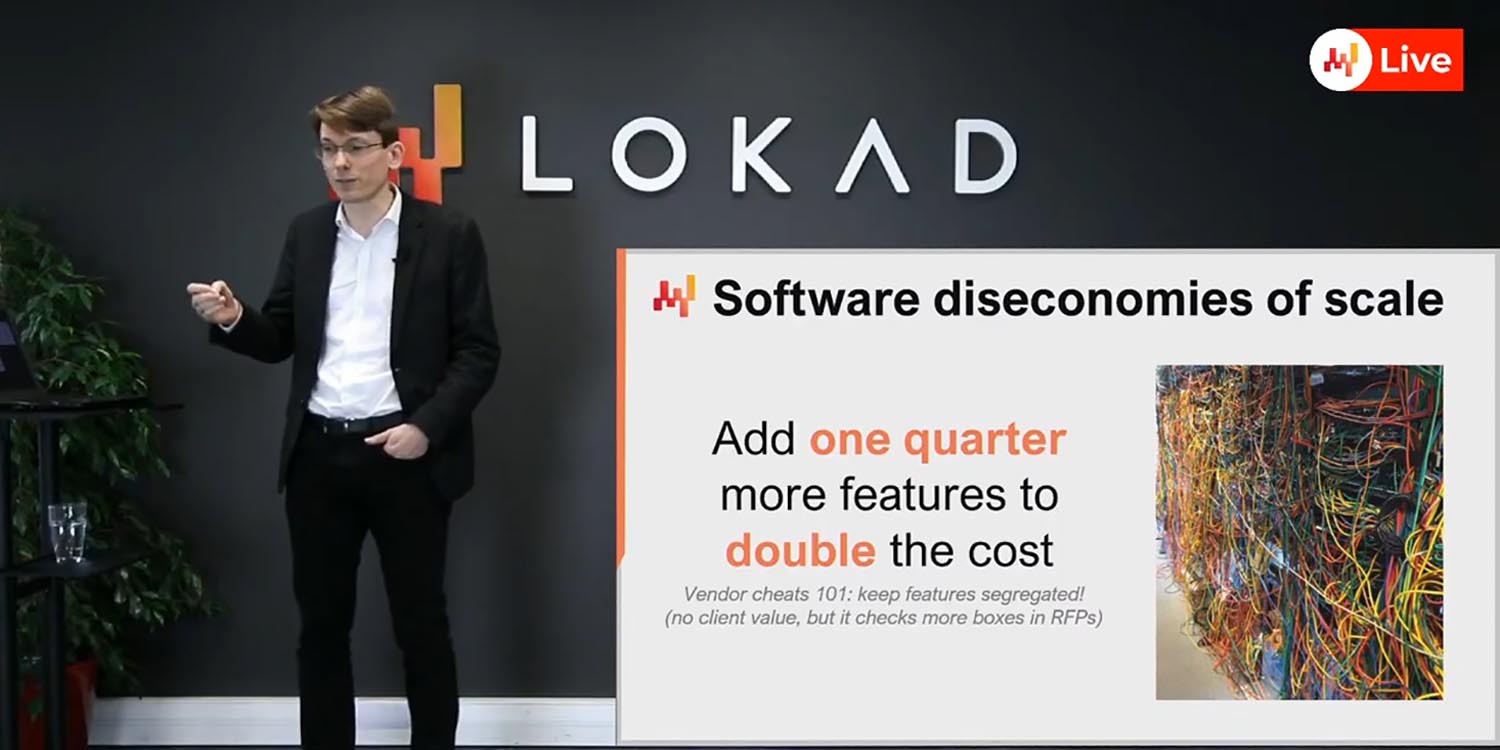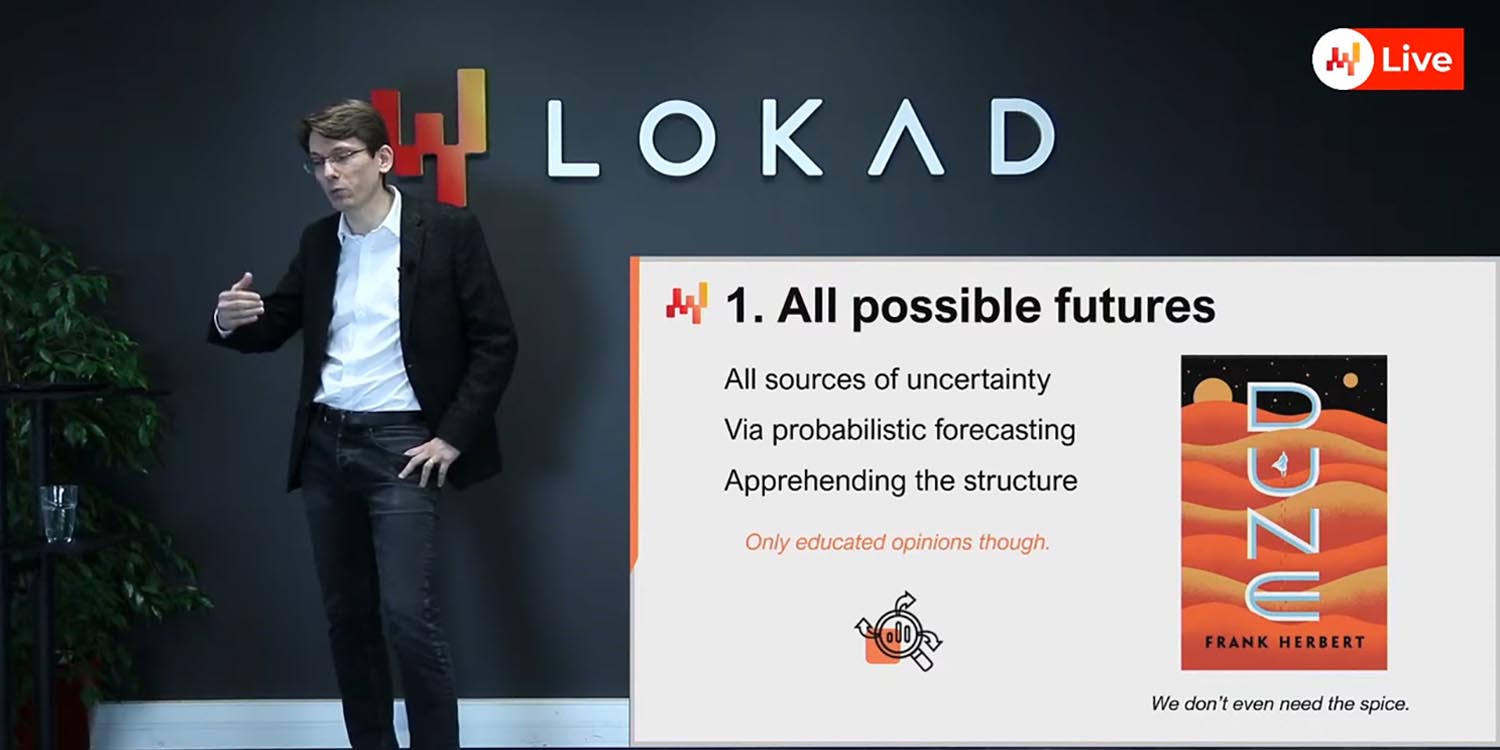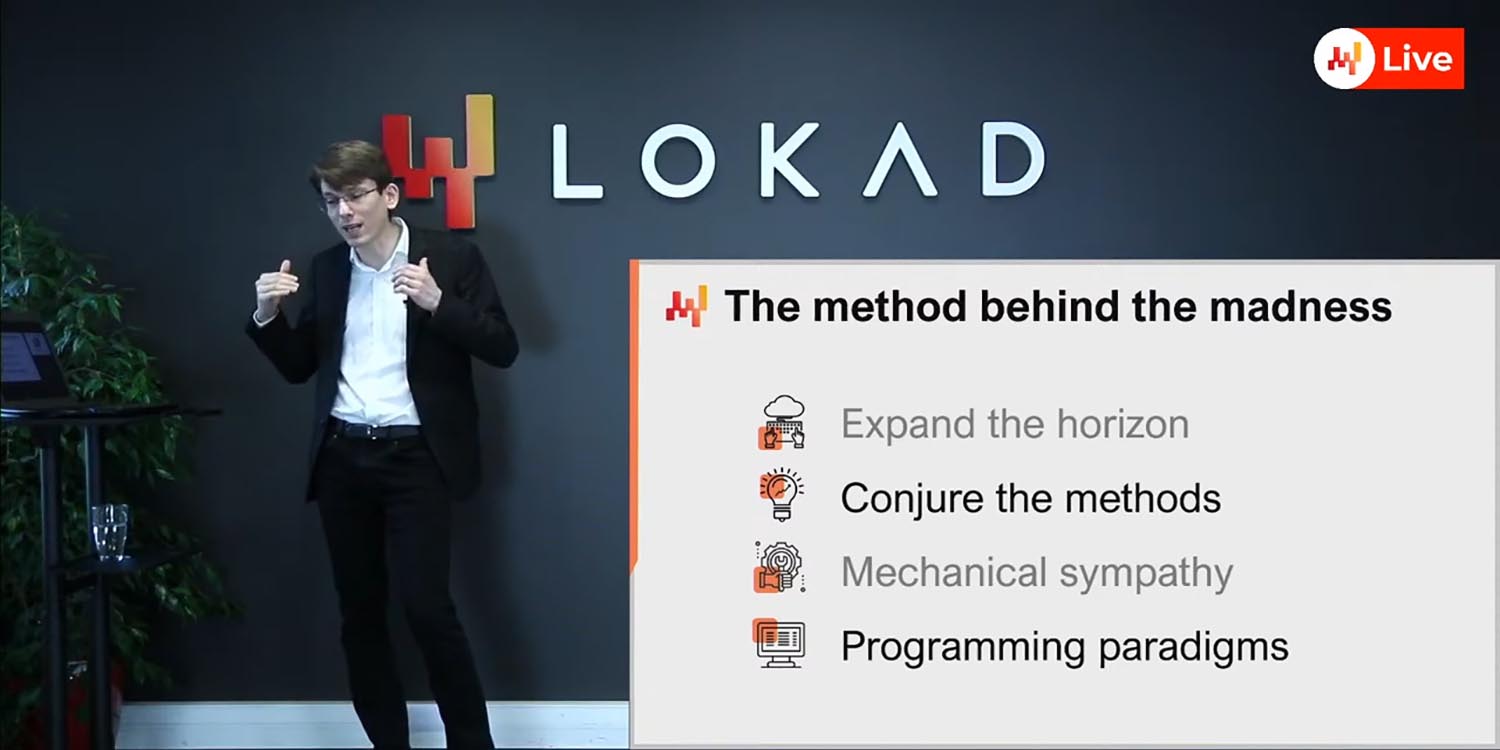Supply Chain Lectures
BACK TO LOKAD TV ›
Programming paradigms as Supply Chain theory - Lecture 1.4
While mainstream supply chain theory struggles to prevail in companies at large, one tool; namely Microsoft Excel, has enjoyed considerable operational success. Re-implementing the numerical recipes of the mainstream supply chain theory via spreadsheets is trivial, yet, this is not what happened in practice despite awareness of the theory. We demonstrate that spreadsheets won by adopting programming paradigms that proved superior to deliver supply chain results.
Product-oriented delivery for Supply Chain - Lecture 1.3
The goal of a Quantitative Supply Chain initiative is either to deliver or to improve a software application that robotizes a scope of routine decisions (e.g. inventory replenishments, price updates). The application is viewed as a product to be engineered. The supply chain theory is there to help us deliver an application that steers the company toward supply chain performance, while being compatible with all the constraints that the production entails.
The Quantitative Supply Chain in a nutshell - Lecture 1.2
The Quantitative Supply Chain's manifesto emphasizes a short series of salient points to grasp how this alternative theory, proposed and pioneered by Lokad, diverges from the mainstream supply chain theory. It could be summarized with':' every single decision is scored against all the possible futures according to the economic drivers. This perspective gradually emerged at Lokad as the mainstream supply chain theory, and its implementation by (nearly?) all software vendors, remains challenging.
The Foundations of Supply Chain - Lecture 1.1
Supply chain is the quantitative yet street-smart mastery of optionality when facing variability and constraints related to the flow of physical goods. It encompasses sourcing, purchasing, production, transport, distribution, promotion, ... - but with a focus on nurturing and picking options, as opposed to the direct management of the underlying operations. We will see how the quantitative supply chain perspective, presented in this series, profoundly diverges from what is considered the mainstream supply chain theory.



